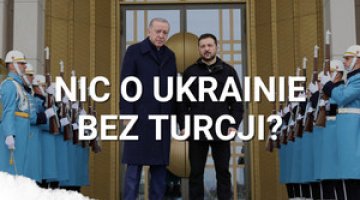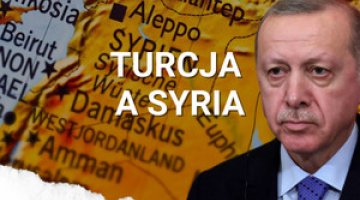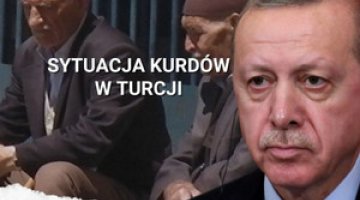Turkey: the escalating Kurdish conflict stimulates a domestic crisis
The domestic situation in Turkey has become increasingly tense. Despite the anti-terrorist operation, which has targeted the Kurds and other groups for almost two months, the scale of the problems facing the government in Ankara is increasing, as exemplified by the security forces taking more than a week to pacify the town of Cizre (leaving around 20 dead). The conflict between the government and the PKK is increasingly involving the general public, as reflected in anti-Kurdish demonstrations and clashes across the country. The anti-Kurdish campaign is a strong element in the pre-election campaign (early parliamentary elections are scheduled for 1 November), but instead of promoting a turning point on the political scene, it has in fact perpetuated and exacerbated the existing divisions. If the current trends – namely the further escalation of the Kurdish crisis and an increase in social and political tensions in Turkey – continue, they threaten to profoundly destabilise the state over the next few months.
The collapse of the Kurdish peace process and a new phase of confrontation
The Kurdish peace process – i.e. the attempt to find a political settlement to the problems of the Kurdish minority in Turkey and conclude the thirty-plus years of war between the Turkish state (currently governed by the Justice and Development Party [AKP]) and the Kurdistan Workers Party (PKK) – has over the last decade been conducted with varying degrees of intensity and interruptions. Its seemingly final collapse took place this July. From the Kurdish perspective, the reason for this was the allegations that the government has not honoured its previous commitments, and that it has actually been working with the Islamic State in fighting the Kurds in Syria (the turning point was Ankara’s ambiguous attitude towards the siege of Koban last autumn). Turkish security forces have also been accused of collaborating with Islamic State in preparing the bomb attack in Suruc (20 July) in southern Turkey, which killed 33 people. For Turkey, the reason for breaking off the peace process and formally launching (24 July) its anti-terrorist operation, targeted mainly at the Kurds, is fear of the consequences of the growing importance and influence of the Kurds in Syria, who control a large part of the north of the country, as well as the rise in ambition and independence of the Kurds in domestic Turkish politics. The anti-terrorism campaign aimed at the Kurds is being conducted on a massive scale: more than a thousand people have been arrested and accused of collaborating with the PKK; a series of air raids on PKK bases in Iraqi Kurdistan has been carried out (according to Ankara at least a thousand fighters have been killed); and steps have been taken to escalate internal conflict among the Kurds, and to weaken or eliminate the HDP on the eve of the early parliamentary elections scheduled for 1 November.
Despite the large-scale activities and apparent military successes of the Turkish forces, the situation since the beginning of September demonstrates a serious aggravation of these problems, not a solution to them.
Far from a conclusion
In the military dimension, the PKK, despite its weakness, has remained able to take effective action against Turkish forces (ambushes, shootings, bombings). On 7 and 8 September alone, attacks carried out in eastern Turkey (in the Igdir and Hakkari provinces) killed 31 Turkish officers and soldiers (according to the Anadolu agency, in this phase of the conflict around 120 military and police officers and around 1200 PKK fighters have died so far), and other attacks are being carried out almost daily. Also, the Turkish operations in Iraq have failed to bring the desired political effects; in retaliation for the recent losses, routine raids on targets in Iraq and special land operations are again being carried out. However, it is doubtful that these will persuade the PKK to surrender.
The dynamics and scale of the challenges were even more clearly demonstrated by the crisis in Cizre (a town in southern Turkey located near the border with Syria and Iraq, predominantly inhabited by Kurds, with a population of over 100,000 residents). In view of the constant tensions persisting in the city, on 6 September the government introduced a curfew and undertook a special operation designed to pacify the city, which was accompanied by the interruption of supplies of water and electricity, as well as the blockade of the health and law enforcement services. In the course of the pacification process the government killed 32 terrorists and one civilian; according to their opponents, at least 21 civilians died. After the end of this ‘state of emergency’, it was nevertheless re-introduced for several hours in Cizre, and also intermittently in several districts of Diyarbakir, the region’s largest city. Cizre showed the mass scale of the Kurds’ dissatisfaction with Ankara’s policy. Moreover, the government’s problems are growing, not only with securing its lines of communication in the east and south of the country (as happened in the previous decades of conflict with the PKK), but also with maintaining control over major cities. The government has therefore been willing to take more drastic measures aimed indirectly at the general public. The situation in Cizre also seems to confirm the thesis that the PKK is preparing not only for battle in the mountains, but also for urban warfare; as well as the idea of an increase in radical sentiment among Kurdish youth (in the extreme case, the progressive independence of the Patriotic Revolutionary Youth Movement [YDG-H], which is affiliated with the PKK).
The Kurdish question has again become a burning social and political issue for the whole country. Last week a series of anti-Kurdish demonstrations and attacks on Kurds and Kurdish targets took place (according to the HDP, 150 of the party’s offices across the country, including its headquarters in Ankara, were attacked and burned; at least one person has been killed, and many wounded). Turkish-Kurdish clashes also occurred in several cities in Germany and Switzerland.
The anti-terrorist election campaign
The conflict with the Kurds has escalated during the campaign for the parliamentary elections (1 November), the second to be held in the past six months. The main motive is the AKP’s desire to recover the parliamentary majority it lost in the elections on 7 June, at the expense of the HDP (which took some Kurdish votes and crossed the 10-percent electoral threshold by ‘taking’ seats from the AKP). One of the key factors for the escalation of the conflict with the Kurds is the desire to split the Kurdish vote and win the support of the nationalist electorate, consequently pushing the HDP out of parliament. The government have been accused of wanting to eliminate the HDP even before the elections, by accusing them of collaborating with the PKK, or of intending to block the elections in Kurdish areas. The current tension – including the anti-Kurdish protests across the country – seems to fit the AKP’s plan, aiming to induce a sense of danger, win over anti-Kurdish sentiment, and mobilise and consolidate the electorate during simultaneous clashes among the Kurds themselves. At the same time, however, the government is faced with increasingly tough criticism from the political opposition and media for its openly authoritarian tendencies; cases of harassment and pressure on media critical of the government have been noted (including violent protests by government supporters at the offices of the Hurriyet newspaper last week).
Contrary to the government’s calculations, in light of the latest surveys conducted in early September by the Metropol and Sonar agencies, the voters’ preferences have not changed since the last elections: support for the AKP is estimated at between 38.1 and 41.4%, compared to the election result of 40.9%; the HDP has 13-13.7%, compared to 13.1% in the last elections; and there are swings of up to 3 percent for the other parties, i.e. the centre-left CHP and the nationalist MHP. As a result, we may expect a further intensification of the election campaign, as well as the strengthening of the political stalemate in which Turkey now finds itself.
Prospects
There is a serious risk of the situation in Turkey deteriorating further. In the Kurdish context, chances for a political easing of the tension are decreasing, while public support for an escalation of the conflict on both sides is rising. The threat of a repetition of the Cizre scenario in other cities of southern Turkey, and the extension of PKK activities in western Turkey (under the influence of anti-Kurdish sentiment in the country, among other reasons), is rising. The domestic conflict inside Turkey may also be adversely affected by a worsening of the situation in Syria and Iraq. If the current trends continue, they may push Turkey dangerously close to a scenario of civil war.
The socio-political situation in the country remains tense, especially in the context of the elections. There has been a clear polarisation of society, conditional on attitudes towards the AKP. This means the extension of support, on the one hand, for anti-government speech, including terrorist-related activity linked to leftist organisations; and on the other hand, for Islamicist radicals. The government’s attitude towards these challenges confirms their readiness for confrontation, rather than dialogue and compromise with their opponents. Regardless of the results of the elections, it is difficult to expect them to meet with broad public acceptance.
The growing tensions in Turkey are indirectly fuelling the migration crisis in the EU; Turkey has the largest concentration of Syrian refugees / migrants (at least two million), and is one of the key routes to Europe. Regardless of the refugees’ objective and longstanding problems, an increase in tensions in the south of Turkey will make it harder to control the Syrian border, and especially complicates the situation of Syrian refugees of Kurdish origin; in extreme cases, new Kurdish refugees may begin to emerge from Turkey. In the broader perspective, instability in Turkey reduces its attractiveness for Middle Eastern refugees in general, and will stimulate their move to Europe; and finally, it threatens to cause numerous misunderstandings and tensions between Turkey and the EU, hampering further cooperation.
Krzysztof Strachota




